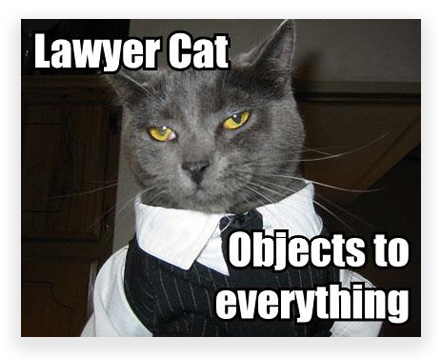We post news and comment on federal criminal justice issues, focused primarily on trial and post-conviction matters, legislative initiatives, and sentencing issues.

HOLGUIN-HERNANDEZ BRINGS FORTH A MOUSE
 Last year, when the Supreme Court granted review in Holguin-Hernandez v. United States, many commentators had high hopes that the high court would relax the requirements for people seeking appellate review of sentence reasonableness. After all, it has been almost a decade since the Court last spoke on the subject.
Last year, when the Supreme Court granted review in Holguin-Hernandez v. United States, many commentators had high hopes that the high court would relax the requirements for people seeking appellate review of sentence reasonableness. After all, it has been almost a decade since the Court last spoke on the subject.
But that was not to be. Last week, the Court found for the defendant while saying about as little as possible.
The defendant was sentenced to 60 months for pot distribution, and because he was on supervised release from a prior drug offense, a revocation sentence of an additional 12 months. The defendant argued the sentence was unreasonably high, but his attorney did not renew the objection after the sentence was pronounced (a ritualistic requirement imposed by a number of circuits). Because of that oversight, the 5th Circuit only reviewed the reasonableness argument under the relaxed “plain error” standard, and affirmed the longer sentence.
The Supremes held for the defendant. “Petitioner’s district-court argument for a specific sentence (nothing or less than 12 months) preserved his claim on appeal that the sentence imposed was unreasonably long,” Justice Breyer wrote. “A party who informs the court of the ‘action’ he ‘wishes the court to take…’ ordinarily brings to the court’s attention his objection to a contrary decision. That is certainly true where, as here, the defendant advocates for a sentence shorter than the one actually imposed… A defendant who, by advocating for a particular sentence, communicates to the trial judge his view that a longer sentence is ‘greater than necessary’ has thereby informed the court of the legal error at issue in an appellate challenge to the substantive reasonableness of the sentence.”
 Unfortunately, the hyper-technical circuit policy that lets a defendant argue for hours against imposition of a Guideline enhancement, but holds that if he or she does not make a further objection after the judge decides to add the enhancement anyway, the argument is forfeited, applies to a lot of sentencing issues besides reasonableness. The Court provided a lot of persuasive arguments against the policy, but stopped short of throwing it out for issues other than sentence reasonableness.
Unfortunately, the hyper-technical circuit policy that lets a defendant argue for hours against imposition of a Guideline enhancement, but holds that if he or she does not make a further objection after the judge decides to add the enhancement anyway, the argument is forfeited, applies to a lot of sentencing issues besides reasonableness. The Court provided a lot of persuasive arguments against the policy, but stopped short of throwing it out for issues other than sentence reasonableness.
Holguin-Hernandez v. United States, 2020 U.S. LEXIS 1365 (Feb. 26, 2020)
– Thomas L. Root

